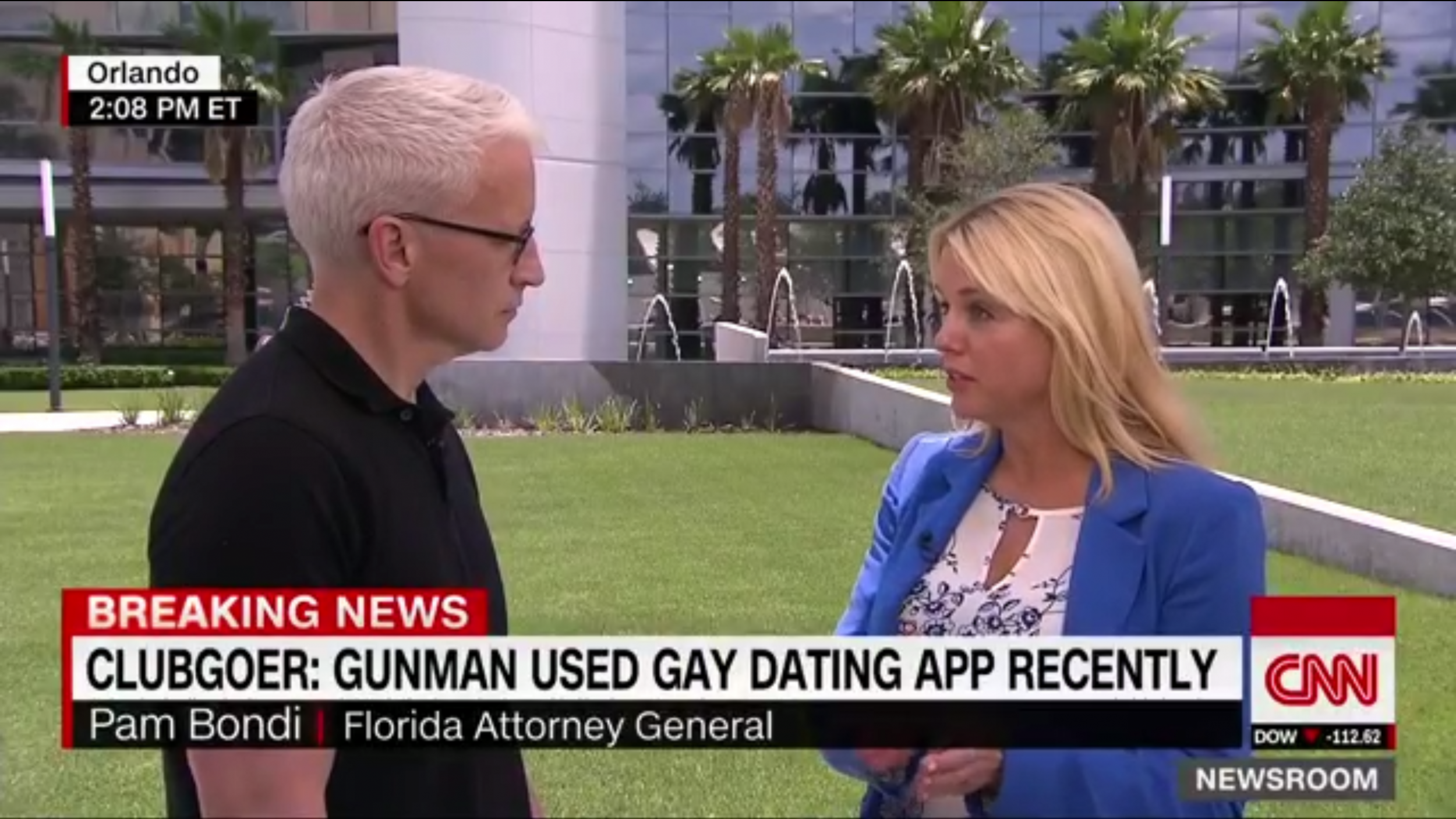Anderson Cooper grills Florida Republican attorney general over lack of support for LGBT people
Pam Bondi wrote in 2014 that the recognition of same-sex marriages would 'impose significant public harm'

CNN's Anderson Cooper went after Florida Attorney General Pam Bondi (R) hard in a one-on-one interview Tuesday, calling into question her status as a champion for LGBT Floridians given her work on the legal fight against same-sex marriage in the state.
And for five minutes, he didn't relent.
Cooper began the interview by quoting Bondi as saying that anybody who attacks Florida's LGBT community will be gone after “to the fullest extent of the law.” The quote — and Tuesday afternoon's interview — were both in regard to the terrorist attack on a gay nightclub in Orlando early Sunday morning.
Cooper then noted that many people in the LGBT community he spoke to did not have much regard for Bondi, given her work against same-sex marriage in the state. Bondi notably, in 2014, wrote in court papers that Florida allowing the recognition of same-sex marriages performed in other states would “impose significant public harm.” (Cooper used the words “induce public harm.”)
That's when things got heated.
“Do you really think you're a champion of the gay community?” he asked.
Bondi emphasized that she was sworn to uphold the Constitution of Florida and that Florida voters had passed a ban on same-sex marriage (it passed with 62 percent support in 2008). “It had nothing to do — I've never said I don't like gay people,” Bondi protested. “That's ridiculous.”
Cooper, who in 2012 became the first openly gay prime-time news anchor, didn't back down, though, focusing on the use of the word “harm” in the court papers.
“Doesn't that send a message to some people who might have bad ideas in mind?” he asked.
“Anderson, I don't believe gay people could do harm to the state of Florida,” Bondi said.
Then Cooper asked again. And again. By the end, he'd asked some version of that question five times.
A visibly frustrated Bondi sighed and said she would also defend a law legalizing marijuana if it were the law of Florida.
Cooper then went deeper. He asked twice about whether there was a “sick irony” that Bondi fought against something that would allow for the loved ones of the victims in Orlando to be notified of what happened and allowed to visit them in the hospital, and the two engaged in a back-and-forth over the state fighting against a federal judge who struck down the state's same-sex marriage law.
Eventually, Bondi tried to steer things away from that territory, but Cooper wouldn't let her.
“You know what today's about? Human beings,” Bondi said. “Today's about victims.”
Cooper interjected: “It's about gay and lesbian victims.”
“It sure is,” Bondi said. “LGBT victims.”
Cooper then again asked whether Bondi is being a “hyprocrite” by portraying herself as a champion of gay people, before making perhaps his most brutal comment: “It's just that — I will say I have never seen you talk about gays and lesbians and transgender people in a positive way until now.”
Bondi responded by noting that her website now has an image of rainbow-colored hands clasped together.
“So you just put that up now?” Cooper said.
“Yeah, I did,” Bondi said. “After this horrible tragedy, absolutely.”

The two ended with a handshake that neither of them really seemed to want to take part in.
Copyright Washington Post.
Join our commenting forum
Join thought-provoking conversations, follow other Independent readers and see their replies
Comments
Bookmark popover
Removed from bookmarks